Even though people spend much more time focusing on frame selection, as a medical device, the lenses of your eyeglasses are the most important part. It is therefore very important that you obtain your lenses (and therefore your glasses) from a reputable source. It is always best to buy eyeglasses through an optometrist who is able to check that the lenses are made and fitted properly to ensure your best possible vision.
Understanding your visual needs and making an informed choice is important to achieve the desired visual outcome. Different prescriptions have different lens solutions. For example, if you are near-sighted (myopic) or long-sighted (hyperopic), your lens choice will be different to someone who has presbyopia (the gradual loss of the ability for the eyes to focus on near objects). People with presbyopia may need special lenses such as bifocal, progressive or multifocal lenses to correct their vision.
What are the different types of Optical Lenses
Lenses
There are a number of variables to consider in selecting lenses.
If you have a high prescription which may require thicker lenses, you may want to ask for aspheric lenses which are thinner than normal lenses.
There are lenses that are made from materials that are more durable and shatter-resistant such as polycarbonate or trivex, which can be useful for children or sports eyewear.
Photochromic lenses can serve as eyeglasses and sunglasses as the lenses darken when exposed to the sunlight to block out the sunlight and UV rays.
Polarized lenses create greater eye comfort by reducing glare specifically from the water or snow and are great for sunglasses for those that spend time outdoors.
There are also a number of coating options that you can add onto lenses to enhance certain characteristics such as anti-reflective coatings, anti-scratch coatings and UV coatings to reduce exposure from the sun, blue light coatings to reduce the amount of blue light that reaches the eye. Adding a coating may require special cleaning or treatment so ask your optometrist about special instructions.
Eyeglasses Over 40
Once you approach age 40 you are likely to begin to experience presbyopia which is the loss of the ability to focus on close objects. This happens as the eye begins to age and can easily be corrected with reading glasses. However, if you already have an eyeglass prescription for distance vision, you will need a solution that enables you to see your best both near and far.
There are a number of options available for presbyopes including bifocals, multifocals and progressive lenses with new technology improving the options all the time.
Types of Lenses
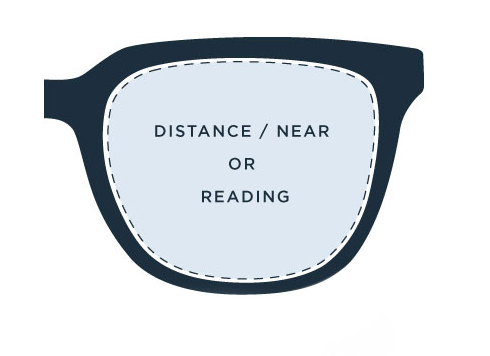
Single Vision
In short, single vision lenses are glasses lenses that only offer ONE type of vision correction. This means that they are crafted to help people see better at farther or shorter distances (nearsighted or farsightedness).
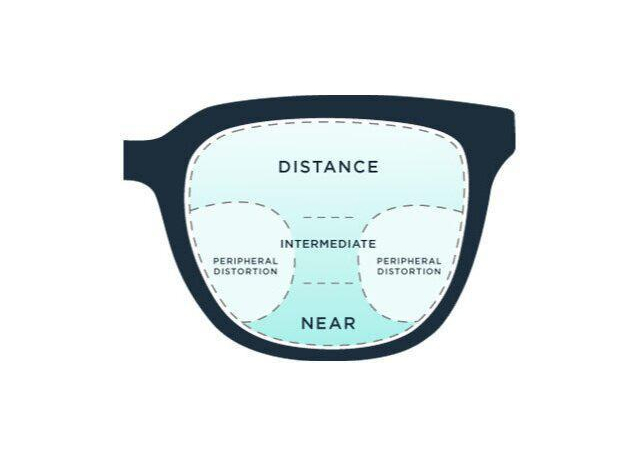
Progressive Lens
Progressive lenses have zones meant for close-up, intermediate, and distance vision. These zones blend into one another, so the change in power is—you guessed it—progressive. Typically, the top portion of the lens helps with distance viewing.
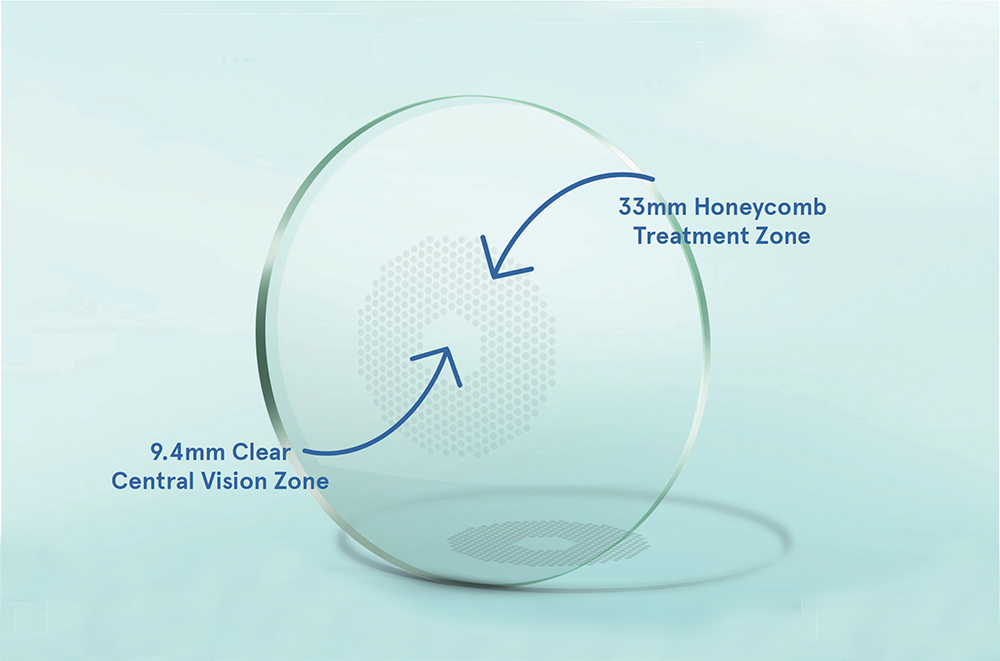
Myopia Management
An innovative treatment solution that provides clear vision, while simultaneously slowing down myopia progression in an easy, safe, effective and non-invasive way.
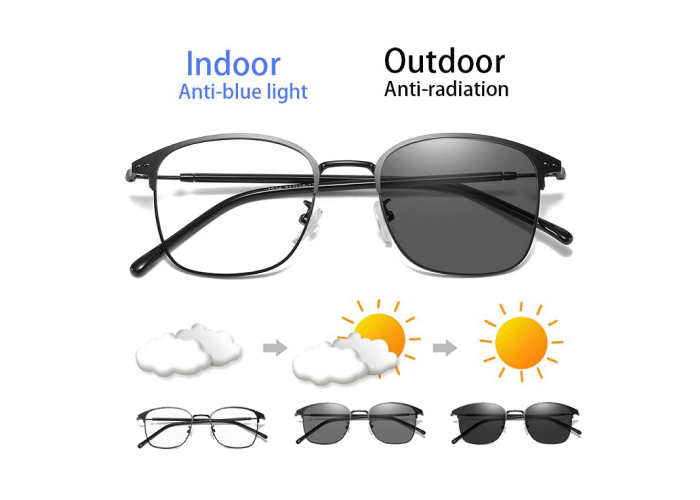
Photochromic Lens (Transition)
A photochromic lens is an optical lens that darkens on exposure to sunlight of sufficiently high frequency, ultraviolet radiation. In the absence of sunlight, the lenses return to their clear state.
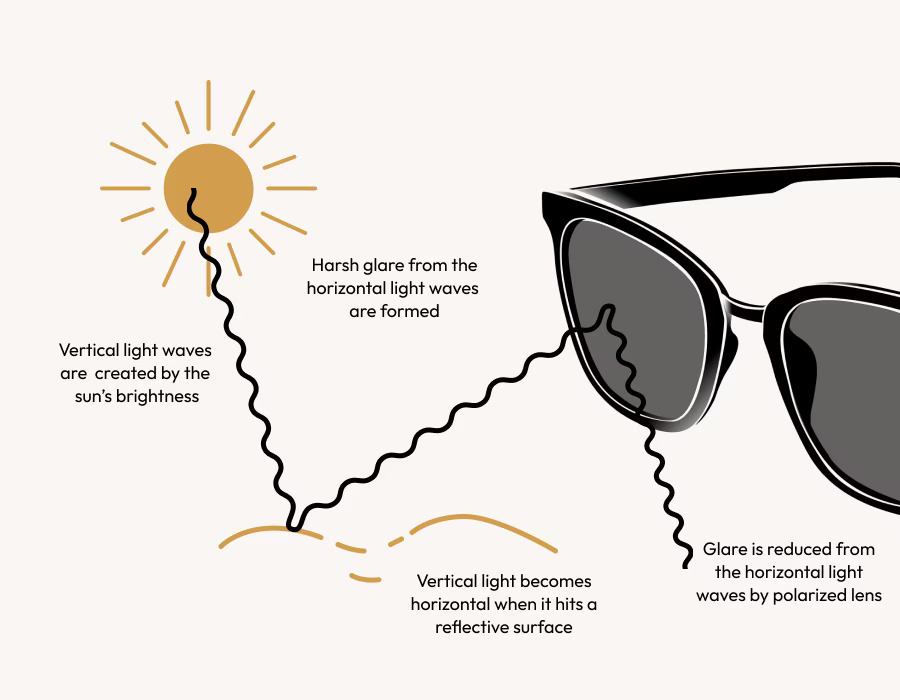
Polarized Lenses
Polarized, or anti-glare, sunglass lenses reduce light glare and eyestrain. Because of this, they improve vision and safety in the sun.

Prism
Prism correction is used in eyeglasses for some people with diplopia, or double vision. This is when someone sees two separate images of one object. The prism helps align the two images, so that only one image is seen.
Lenses Treatments
- UV Protection: The UV rays in sunlight can be harmful to the eyes. Lenses that block 100% UV help to ward off various eye conditions and damage.
- Anti-Reflective: For fashion, comfort and clarity anti-reflective treatments are the way to go. They make the lens nearly invisible, and cut glare from headlights, computer screens and harsh lighting.
- Blue Light Glasses: (Sometimes called blue light blocking glasses) are glasses that contain lenses specifically designed to reduce the amount of blue light that reaches the eye. These lenses filter blue light rays to help prevent them from entering your eye and causing potential damage.
Goggles
Enjoy sports to the fullest, with no worries about eye safety. Swimming and sports goggles available in our store.

